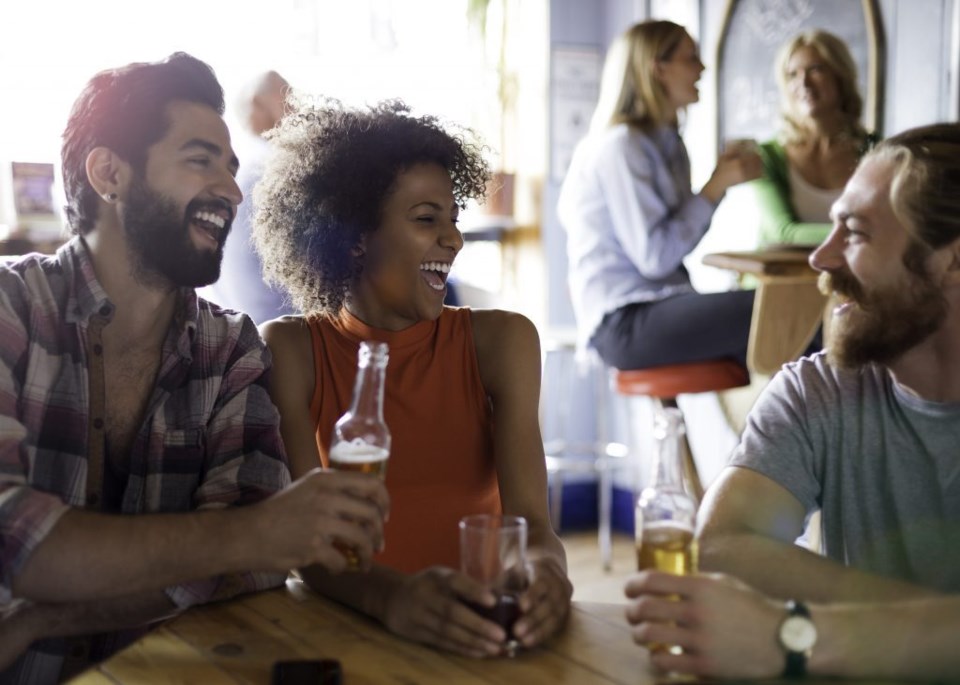As the number of COVID-19 cases continues to drop, parts of the Canadian economy have started to reopen — including restaurants, salons and other businesses.
You may be wondering when it will be safe for your favourite bar or nightclub to reopen and return to normal, but experts say that probably won’t happen anytime soon.
“Even if we’re taking it very slowly and our numbers remained quite low and we were feeling reassured by that, all it really takes is one person who doesn’t yet show symptoms but is infected with COVID-19,” said Dr. Susy Hota, the medical director of the Infection Prevention and Control and Medical Device Reprocessing department at the University Health Network in Toronto.
Bars and clubs are of extra concern, Hota said, given what researchers know about the spread of the novel coronavirus and other infectious diseases.
“What do we know about how clubs and bars are configured? They’re usually fairly tight spaces, you have people packed in there (who) are socializing, there are no windows or ventilation,” Hota said.
“And when people start drinking and relaxing, inhibitions go down.”
At this point, Hota says she can’t see how you can open up a bar in Canada without having risk of transmission of COVID-19.
Dr. Leighanne Parkes, infectious disease specialist and microbiologist at the Jewish General Hospital in Montreal, agrees.
“There are certain things from a public health standpoint, or from an infection prevention standpoint, that we are really focused on — one of which is the attack rate: the percentage of susceptible people who end up getting infected when they’re exposed to the virus,” Parkes said.
“We know that the highest attack rates in general are in close contact.”
For example, studies show that the attack rate is somewhere between six to 10 per cent inside someone’s house, Parkes said.
However, there is evidence of “superspreading events,” which have attack rates that are around 50 per cent and higher.
Parkes refers to a small outbreak which emerged from a slew of South Korean nightclubs that one confirmed patient had visited, causing 34 more new coronavirus cases.
“You have a high population density, they’re often moist and warm with turbulent airflow and you have a lot of human behaviour changes — people are in close contact with each other,” Parkes said.
“Plus, you’re not stationary. You’re moving and exposing multiple people.”
A big part of the problem with nightclubs and bars is these spaces typically have poor ventilation.
“You don’t have as many air exchanges per hour,” Hota said. “Air exchanges … are how many times would the volume of air that’s in a given space be replaced by fresh air, ideally, in one hour.”
The higher the number of air exchanges per hour, the better the ventilation is in a space — and the lower exposure each person within the space will have to any infectious diseases, like COVID-19.
“The longer you’re in an enclosed space, the more potential exposure you can have,” Hota said.
“That’s why being outdoors is safer than being indoors when you’re dealing with these kinds of viruses.”
Cases like the outbreak from the South Korean nightclubs are so important because they support what scientists already know: that people can unknowingly spread the virus before they themselves have any symptoms.
“They’re giving it to people when they don’t even realize (they have it), so we can’t really fault the individual who is transmitting,” Parkes said.
“We really have to be more focused on preventative behaviours and social distancing to halt the spread of the virus, more than we can reply on people to isolate themselves when they have symptoms, because we know that a lot of the transmission can occur prior to the onset.”
Both Hota and Parkes agree: it’s not yet safe for bars and nightclubs to return to normal.
“I think that the vaccine is our best bet to (reopen these spaces) without feeling like there has to be a lot of conditions put on things,” Hota said.
Parkes says there should be strict regulations in place.
“You can kind of imagine nightclubs in more open spaces, with more physical distancing and behaviours like masking, adequate surveillance, hand hygiene, environmental cleaning, optimized ventilation,” Parkes said.
“All these things are probably going to play a very important role, at least until we have things like vaccines.”
Questions about COVID-19? Here are some things you need to know:
Symptoms can include fever, cough and difficulty breathing — very similar to a cold or flu. Some people can develop a more severe illness. People most at risk of this include older adults and people with severe chronic medical conditions like heart, lung or kidney disease. If you develop symptoms, contact public health authorities.
To prevent the virus from spreading, experts recommend frequent handwashing and coughing into your sleeve. They also recommend minimizing contact with others, staying home as much as possible and maintaining a distance of two metres from other people if you go out.
In situations where you can’t keep a safe distance from others, public health officials recommend the use of a non-medical face mask or covering to prevent spreading the respiratory droplets that can carry the virus.
For full COVID-19 coverage from Global News, click here.
— With files from Global News’ Emerald Bensadoun and the Canadian Press
Follow @meghancollie